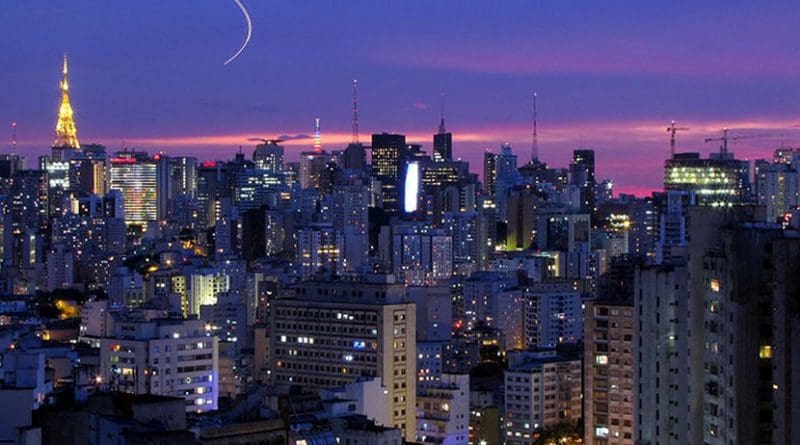Brazil: Rise In Public Debt Challenge For Next President
By ABr
By Gilberto Costa
Regardless of who is going to win Brazil’s upcoming presidential race, one thing seems to be certain: they will have to cope with the constant rise in the country’s public debt. According to forecasts for investors by Brazil’s Natural Treasury, indebtedness is likely to go from today’s 75.7 percent of the gross domestic product to 82 percent in 2022—the last year of the next president’s term of office. Even if the next head of state is re-elected, the debt is only likely to take a downward turn in 2025—the third year of a hypothetical second tenure.
The prediction is shared by a number of analysts, from both inside and outside of the government’s economic staff. Agência Brasil heard the same diagnose from several universities and other public institutions. Experts add that the increase in the public debt will be felt during the next’s president term of office even if fiscal adjustment measures are taken.
“In our current landscape, the public debt is on the rise, and tends to remain so despite fiscal efforts the government may make in a bid to cut spending and boost revenue,” said Marco Cavalcanti, deputy director for Studies and Macro-economic Policies at the Institute of Applied Economic Research (Ipea).
“There’s no magic trick to be pulled here. The debt is substantial, and generates interest. And there’s also the primary deficit, which will not be zeroed or turned into a surplus anytime soon,” Cavalcanti argued. Primary deficit is the negative balance of government accounts, not considering the payment of interest in the public debt.
Scenarios
Specialists from Brazil’s Ministry of Planning, Development, and Management forecast two fiscal scenarios. In both, the difference between revenues and spending in the public sector is negative in the coming years. For as long as public accounts are in the red, the federal debt is most likely to remain under pressure.
In the first scenario, “structuring overhauls are implemented to bring about fiscal balance in the long term.” Under these conditions, public accounts should remain negative until 2022. In the second scenario, in addition to the reforms, “micro-economic overhauls [are brought into force] to increase growth potential, making the primary balance positive a year before, in 2021.
The road may be longer and bumpier without economic growth. “A lower indicator of economic activity can affect the trajectory of the debt,” said Felipe Salto, director-executive with the Senate’s Independent Fiscal Institution. Data from the National Treasury and the Institute of Geography and Statistics show that the public debt started to grow when the economy slackened, in 2014 and later.
“One can only think of stabilizing Brazil’s public debt after growth is restored. The public deficit cannot be stabilized with a decreasing GDP either,” noted Pedro Rossi, professor at the Economics Institute of the University of Campinas (Unicamp).
Vilma Pinto, researcher for applied economics with FGV-IBRE, shows how the aggravation of the economic landscape is reflected on fiscal deterioration. He looks at the last decade and points out that, from 2008—when an international crisis was taking place—and 2018, “there was a reduction of 2.5 percentage points in primary revenues and an increase of 3.2 percentage points in primary spending. The net balance shows a decrease of 5.7 percentage points in the GDP.”
Political ripples
In the view of Carlos Ranulfo, professor at the Political Science Department of the Federal University of Minas Gerais (UFMG), the fiscal situation will be a great challenge for the next president of Brazil. By seeking to restore growth, he says, the new administration must not further increase the deficit.
In Ranulfo’s opinion, in addition to the low GDP, whoever is elected in October will have to deal with the costly hassle of a future Congress “highly pragmatic and given to clientelism.” The legislative branch has concentrated pressure for public spending, as it seeks to meet a large number of demands, many of which from corporations and major groups of electors.
Ranulfo believes that, during the period of electoral campaigns, the current state of affairs regarding the debt may favor candidates who give precedence to fiscal balance and hold close ties with the financial market, seeking to stabilize public accounts. These characteristics, however, do not tend to be popular among electors. “You don’t campaign with caution, you campaign with hope,” he argues.

